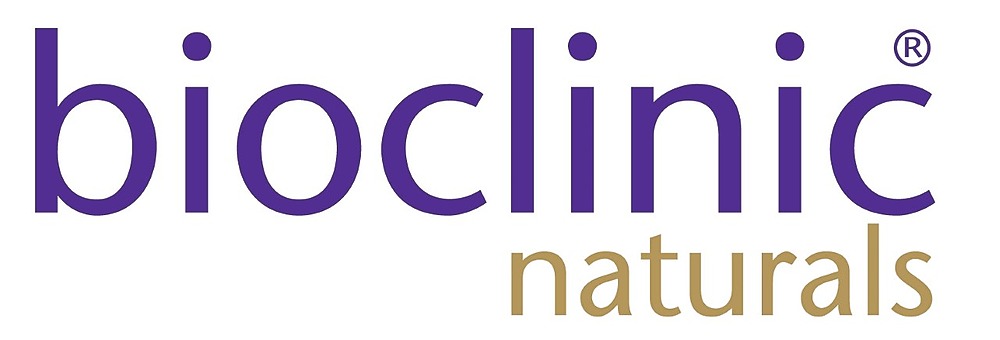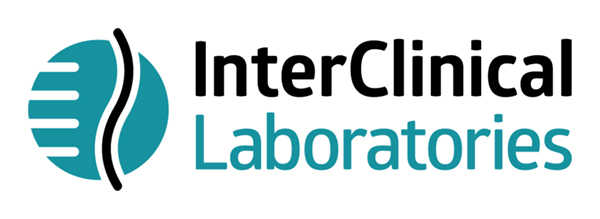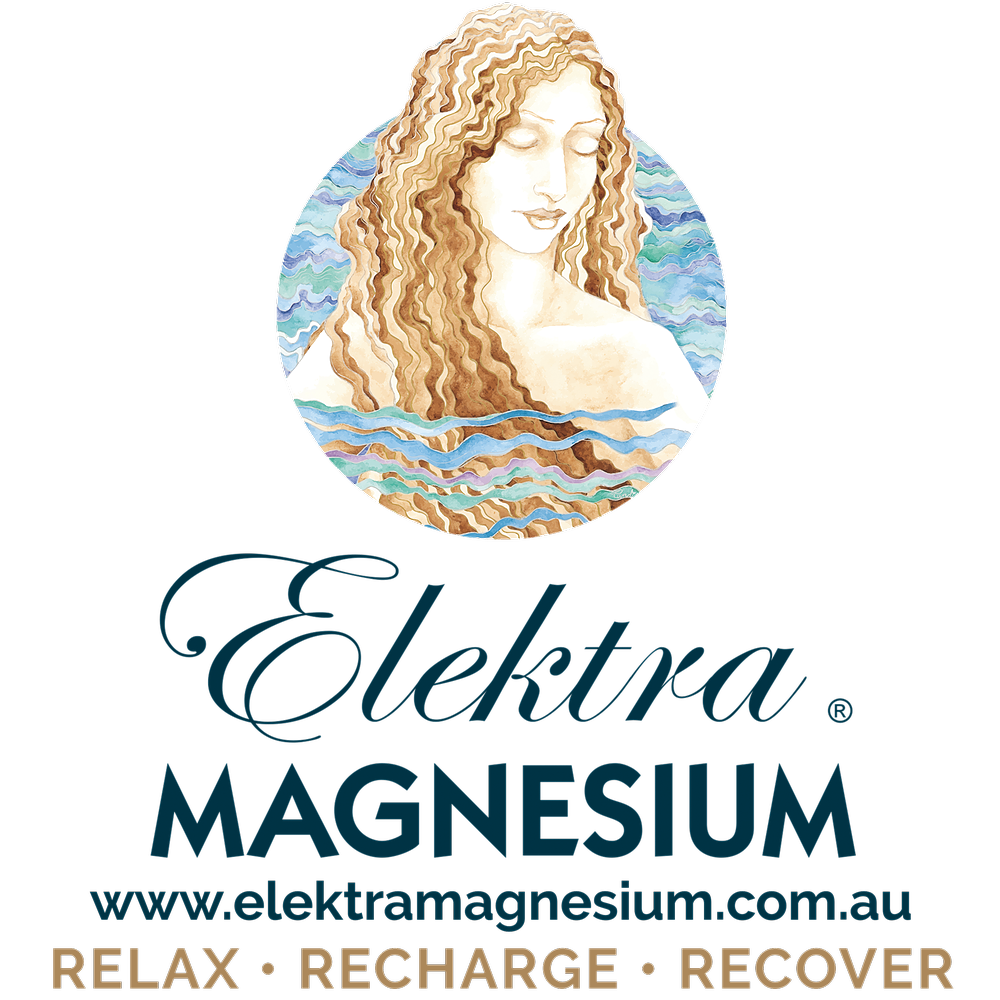ATMS Special Event: Healthy Brain Symposium - Sydney
Event description
ATMS SPECIAL EVENT: Healthy Brain Symposium
With depression and dementia on the rise, ATMS invites practitioners to a Special Event on Saturday 30 August 2025 - the Healthy Brain Symposium – which will focus on addressing these health concerns.
Discover how to support brain health in a world where metabolism has changed, lymphatic function is compromised, and there is an increasing toxic load from the environment. Learn how these factors collectively impact cognitive decline and explore actionable strategies to address them.
Join leading speakers and health professionals as they explore strategies for preventing and managing depression, dementia, and other cognitive concerns. This is a unique opportunity to deepen your understanding of brain health, enhance patient care, and incorporate practical, evidence-based approaches to optimise brain health.
Take a proactive step in empowering your patients and practice. Join us at the ATMS Healthy Brain Symposium!
Program summary (Presenter bios and full topic outlines below):
The sleep-mental health connection: effective integrative strategies for restoring healthy sleep - Dr Adrian Lopresti
Understanding Neuro-Inflammation: A Key to Brain Health & Mental Wellbeing - Megan Wilks
Rewiring the brain: The science of psychoneuroimmunology and biohacking - Dr Marc Cohen
The menopausal brain: Understanding neurological shifts and women’s health – Dr Sarah McKay
Optimising brain health: Preventing and reversing cognitive decline – Jo Grabyn
Dementia: The What, The What to Do, and The What Not to Do – Dr. Mark Hohenberg
To help keep you calm and focused throughout the day, we’ll have two extra special sessions during the symposium:
6 Healing Sounds – QiGong based breath and vibration self therapy – Donna Eddy
Holistic Meditation – Rowena Jayne
When: Saturday, 30 August 2025
Where: Hilton Sydney - 488 George Street, Sydney
CPE Points: 6 CPE points
Pricing:
Until 31 January 2025: Super Early Bird ATMS Member – $270
Until 31 January 2025: Super Early Bird ATMS Student Member - $150
Until 30 June 2025: Early Bird ATMS Member - $295
Until 30 June 2025: Early Bird ATMS Student Member - $175
ATMS Accredited Member – $320
ATMS Student Member – $200
Non-ATMS Member – $395
Non-ATMS Student – $225
Dr Adrian Lopresti
Dr Adrian Lopresti is a Clinical Psychologist, Managing Director at Clinical Research Australia, and a podcast host and Ambassador for FX medicine, an allied healthcare education platform. He has 25 years of clinical experience working with children and adults with a range of mental health conditions. Dr Lopresti has experience in using several psychological therapies and has received extensive training in nutritional and lifestyle treatments for mental health disorders.
Dr Lopresti regularly publishes in peer-reviewed, high-impact journals and has completed several clinical trials investigating the effects of ingredients such as curcumin, saffron, ashwagandha, bacopa monnieri, probiotics, and holy basil on anxiety, depression, insomnia, and cognitive decline in children and adults. Dr Lopresti is also the founder of Personalised Integrative Therapy, a holistic treatment for depression and anxiety, and regularly conducts workshops both nationally and internationally.
Session: The sleep-mental health connection: effective integrative strategies for restoring healthy sleep
Insomnia and other sleep disturbances are associated with an increased risk of a large array of physical and mental health conditions. In this presentation, Dr Lopresti will review the relationship between sleep, cognitive performance, and mental health disturbances.
The pathophysiology associated with poor sleep, its impact on brain health and function, and the potential lifestyle, psychological, and environmental drivers of this pathophysiology will be covered. The physiological processes important for sleep are sometimes complex and understanding these mechanisms can help practitioners identify appropriate assessment and treatment options to help restore healthy sleep in clients.
Through case illustrations and a review of current sleep-related research, assessment options appropriate for natural health practitioners will be reviewed. Integrative approaches to improving sleep will be covered, comprising psychological, environmental, dietary, and lifestyle interventions. Herbal and nutraceutical options to support healthy sleep, improve cognitive function, and enhance emotional wellbeing will also be reviewed.
The aim of this presentation is to give natural health practitioners tools that can be utilised in clinic to enhance treatment outcomes in clients presenting with sleep disturbances.
fx Medicine by BioCeuticals is the proud sponsor of Dr Lopresti’s session.
Megan Wilks
Megan is driven by a passion for transforming mental wellness through brain health. With a Master’s in Applied Neuroscience from King’s College London and a Bachelor of Natural Medicine, she combines scientific research with practical expertise.
Her personal battle with depression sparked a decade-long mission to uncover not only alternative causes and solutions for poor mental health, but what these symptoms reveal about brain health.
Megan’s primary focus is on neuro-inflammation and how specific plant chemistry and lifestyle factors can modulate it. She has conducted studies using neuro-anti-inflammatory flavonoids in cases of traumatic brain injury, post-concussion syndrome, depression, chronic stress, and overwhelm.
Dedicated to educating and empowering others on the critical role of brain health in mental wellbeing, vitality, and resilience, Megan is the Founder & Chief Vitality Officer of The Vitalogy Project.
Session: Understanding neuro-inflammation: A key to brain health & mental wellbeing
What if symptoms like brain fog, anxiety, low mood or forgetfulness weren’t just random frustrations, but your brain’s way of waving a red flag, asking for help?
Neuroinflammation is a common yet often overlooked factor in almost all brain pathologies and dysfunctional brain processes. While its role varies depending on the condition, one thing is clear—it fuels a feedback loop that can profoundly impact mental wellbeing, cognition, and overall brain function.
From mental health concerns like chronic stress, burnout, brain fog, depression, and anxiety to neurodegenerative diseases such as Alzheimer’s and Parkinson’s, brain injury (including concussion and stroke), and neurodevelopmental conditions like autism and ADHD—neuroinflammation is a key player.
The good news? This cycle can be disrupted. By integrating anti-inflammatory nutrition and neuroprotective compounds, stress management and lifestyle factors, we can not only support brain health and mental wellbeing now but also safeguard quality of life and cognitive function for the future.
This presentation will explore the crucial yet under-recognised link between neuro-inflammation, brain health and mental wellbeing. The aim of this presentation is to highlight the causes and impact of neuro-inflammation, as well as how chronic, unresolved inflammation in the brain manifests in symptoms that should not be seen as isolated issues, but as helpful, important red flags pointing to deeper dysfunction.
Dr Marc Cohen
Dr Marc Cohen is a Medical Doctor, University Professor, Author, Poet, Entrepreneur, wellness trailblazer and perpetual student of life. Dr Marc embodies the role of a bridge-builder, connecting ancient wisdom with modern science, academia with industry, and individual well-being with global health.
Researching and practicing integrative medicine for more than 30 years and contributed to original research in the fields of nutrition, herbal medicine, yoga, meditation, acupuncture detoxification health retreats, saunas, hot springs, hydrothermal wellness, fermentation, elite athletic performance, and flow states.
Dr Marc has published more than 100 peer-reviewed scientific papers and many books and technical texts on wellness and natural medicine including the landmark texts ‘Herbs and Natural Supplements: An Evidence-Based Guide’ and ‘Understanding the Global Spa Industry’.
Session: Rewiring the brain: The science of psychoneuroimmunology and biohacking.
This presentation will review the principles of psychoneuroimmunology and hormesis, as well ways to enhance cognition, brain health and overall wellbeing through numerous bio hacks and protocols; many of which are summarised by easy to remember poetry. Marc will review the impact of neurotoxicity, detoxification and the importance of sleep and discuss how hormesis can rewire the brain by utilising contrast bathing and other practices to induce physiological and psychological stress. Fostering renewal and regeneration through apoptosis, autophagy and enhancement of homeostasis.
Practitioners will learn practical ways to reduce sympathetic activation and enhance parasympathetic activation through body movements that can serve as emotional first aid. Marc will outline ways to reduce fear and anxiety and improve immunity through simple lifestyle interventions that require very little cost training or equipment. The use of traditional medicines including nootropics, adaptogens and traditional dietary practices and how these can enhance brain health in the light of recent developments in gut health, the gut-brain axis and our understanding of glucose regulation will be reviewed. The concepts of ‘pronoia’ and ‘paranoia’ will be explored and how redirecting human attention and motivation can rewire neural circuitry to achieve greater joy and fulfilment along with optimal health outcomes.
Dr Sarah McKay
Dr Sarah McKay is a neuroscientist and science communicator, adept at making brain science accessible for enhancing health, wellbeing and performance.
An Oxford University graduate, Sarah earned her MSc and PhD in neuroscience before moving to Australia, where she conducted postdoctoral research on spinal cord injury for five years. She then founded Think Brain, a science communications and education company devoted to applied neuroscience and brain health.
She is the author of three books on brain health. The Women's Brain Book: The Neuroscience of Health, Hormones, and Happiness was published in 2018, with a second edition set for release in mid-2025. Baby Brain: The Surprising Neuroscience of How Pregnancy and Motherhood Sculpt Our Brains and Change Our Minds (for the Better) explores the transformative effects of pregnancy and motherhood. Her third book on brain health, written for the iconic For Dummies brand, was released in early 2025.
Session: The menopausal brain: Understanding neurological shifts and women’s health
Midlife for women is more than just menopause. And menopause is more than just a hormonal shift – it’s a profound neurological transition, much like puberty and pregnancy. This session explores how brain structure and function change leading up to and during midlife, drawing on contemporary neuroscience research.
This session will share the latest research behind common symptoms like brain fog, sleep disturbances, mood swings, and anxiety. Sarah will explore the role of hormones in these changes (is it all down to hormones?), alongside the broader interplay of stress, lifestyle, and brain health.
She will also demystify the ongoing conversation around hormone replacement therapy (HRT) – its impact on cognition, sleep, and dementia risk – helping attendees make sense of the science beyond the headlines.
The session will conclude with an introduction to the Bottom-Up, Outside-In, Top-Down framework – a practical, brain-friendly psychoeducation tool for ‘explaining the brain’.
Jo Grabyn
Jo is a passionate Nutritional Medicine Practitioner with a life-long obsession for learning how to not only improve but optimise brain health. After watching her grandfather decline with Alzheimer’s Disease, then seeing her Dad never recover from a traumatic brain injury she was determined to keep looking for ways to heal our brain.
She was accepted into the first cohort ever trained by Dr Dale Bredesen at The Buck Institute of Ageing in 2016 and fell in love with the concept that nobody should be told, “You have dementia, I’m sorry, it’s time to get your affairs in order.” They should instead be told, “You have dementia / cognitive decline due to…… and here’s what we can do to help.”
Since then, Jo’s continued looking for more answers, training with Dr Daniel Amen of the Amen Clinics USA, with Dr James Greenblatt of Psychiatry Redefined, and for many years with numerous functional neurologists and specialists at Integrative Medicine for Mental Health.
Session: Optimising brain health: Preventing and reversing cognitive decline
Imagine your client comes to you, not only with brain fog, but some specific cognitive deficits like losing words, struggling with basic calculations, no longer able to follow the plot in movies, or they now need to read something 4 times to remember any of it?
Where do you start!
In this session, we’ll dig into the various internal and external drivers influencing brain dysfunction, leading to a decline in cognition. Whether they’re looking for brain optimisation, prevention of cognitive decline, or even slowing, stabilising, then hopefully, reversing active cognitive decline; every detail needs to be considered to help you uncover the key risk areas for each client.
From crucial areas to cover in your initial consultation, through to neurocognitive, pathology and functional testing options, we’ll look at how to figure out what is most important to your client, right now, and what might be okay to leave for later.
We’ll also take a look at some case studies & success stories from late onset MCI, to young onset dementia (possibly CTE), and how to incorporate prevention and optimisation plan into a busy life.
Dr Mark Hohenberg
Mark is a practicing Specialist Geriatrician in Sydney who has worked in varied roles including clinical and corporate governance, research, clinical trials, medicolegal and education. Mark has also worked as a Clinical Dean for Western Sydney University’s Medical School, working on their executive team to build educational capacity for Western Sydney and beyond.
Mark works on the clinical advisory boards of Bestmed and Homeage Australia, with further consulting roles to international organisations in healthcare and virtual reality technologies. Mark also works as part of a high performing research team at Western Sydney University’s National Institute of Complimentary Medicines (NICM), publishing research that validates complimentary medicines in dementia and pre-dementia.
Mark has built a reputation for bringing a holistic specialist approach for our seniors including in his interest areas of dementia, frailty and malnutrition.
Session: Dementia: The What, The What to Do, and The What Not to Do
Dementia is one of the greatest health challenges of our time, affecting millions of Australians and their families. Yet, misconceptions persist—many still believe losing memory is just a normal part of ageing. In this insightful and practical presentation, Dr. Mark Hohenberg breaks down the realities of dementia, the best strategies for managing it, and common mistakes to avoid.
Drawing on the latest Australian ADNET research and global best practices, Dr. Hohenberg will provide an evidence-based and practical real-world framework for understanding dementia, covering diagnosis, treatment, and lifestyle approaches.
In his presentation, Dr Hohenberg will share valuable insights into both pharmacological and non-pharmacological approaches to cognitive health, highlighting recent NICM research on SaiLuoTong (SLT)—a compound herbal formula of ginkgo, ginseng, and saffron—featured in the Phase II clinical trial in treating vascular dementia.
The session will discuss the role of deprescribing, managing concurrent conditions, and strategies to prevent anaesthesia- and surgery-associated cognitive decline, offering practitioners practical tools to enhance cognitive outcomes across diverse patient populations.
Donna Eddy
Originally a movement coach and trainer, Donna turned to movement therapy as a way to restore herself to full health after experiencing a serious back injury. Donna has dedicated her life to developing effective techniques to help others manage and recover from pain and stress.
Donna is a Remedial Massage Therapist & Acupuncturist. She has experience presenting nationally and has taught the current diploma of massage since 2015. Donna was invited as a co-contributor in “Fascia and Sport & Movement” First Ed, 2015, as a result of her strong background in Movement Training and Stretch Therapy. In 2019, her Posture Plus program launched with innovative and integrative ways to optimise treatment results and client compliance to home care.
Session: 6 Healing Sounds – QiGong based breath and vibration self therapy
From the great Mantuk Chia you’ll be taken through the 6 Healing Sounds, to cleanse and harmonise the organs and transform negative emotions to positive emotions with this QiGong practice.
Rowena Jayne ND
Rowena is an award-winning Psychotherapist, holding a Bachelor degree in Naturopathy, an Advanced Diploma in Nutrition, alongside postgraduate training in Neuro Emotional Technique (NET). She is also a trained in meditation, shamanic medicine, Ayurveda, psychosomatic massage, NLP, hypnosis, and is an international yoga instructor of 22 years.
Currently, Rowena is studying with Mind Medicine Australia after receiving a scholarship for the psychedelic-assisted treatment (PAT) certification program, and is completing an Advanced Diploma in Homeopathy.
With over two decades in the field, Rowena operates her Sydney clinic, specialising in mental health. She serves high-functioning women with anxiety, trauma, PTSD, and the often associated gut-health.
Session: Holistic Meditation
In this 8-minute guided session, Rowena will lead you into a serene space through a holistic meditation that incorporates breath regulation, and the grounding energy of an earth spot. This practice is designed to help you regulate your nervous system and cultivate a sense of calm and clarity.
EVENT SPONSORS:
Platinum Sponsor:
Gold Sponsors:
Silver and Bronze Sponsors:
Tickets for good, not greed Humanitix dedicates 100% of profits from booking fees to charity




























